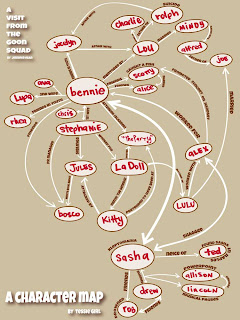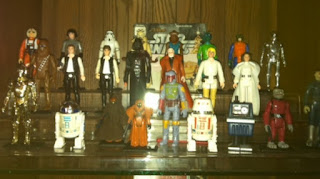Why Write Novels At All?
Usually when people ask me why I write books, I tell them because I have to.
It's a pretty good answer and I can't think of any other way to describe it. For whatever reason, there is this narrative engine within me that compells me to try and tell stories. This engine is missing a belt or two sometimes, but you know what I mean. There is a very interesting article in the NY Times this morning that poses the question in general: why write novels at all? In the face of more popular entertainment, specifically movies, why the novel and not a screenplay? What motivates a writer to write? A reader to read?
The novel faces the same challenge that the play did when the novel took over the mainstream consciousness. I don't think the novel or literature is in any danger - more people read now than have ever read. The book will be fine. In fact, the book is experiencing something of a revolution. The e-reader and digital publishing hasn't so much changed the way we read as how we write. Or who writes. The most interesting part of the article today was this:
I'm glad I have the opportunity to share what I write. I would write even if I couldn't publish it traditionally. I just have to. Storytellers have voices. At the fire, at the dinner table, no one has ever said, you can't share your story. You don't have the appropriate education or class.
People tell stories.
It's a pretty good answer and I can't think of any other way to describe it. For whatever reason, there is this narrative engine within me that compells me to try and tell stories. This engine is missing a belt or two sometimes, but you know what I mean. There is a very interesting article in the NY Times this morning that poses the question in general: why write novels at all? In the face of more popular entertainment, specifically movies, why the novel and not a screenplay? What motivates a writer to write? A reader to read?
The novel faces the same challenge that the play did when the novel took over the mainstream consciousness. I don't think the novel or literature is in any danger - more people read now than have ever read. The book will be fine. In fact, the book is experiencing something of a revolution. The e-reader and digital publishing hasn't so much changed the way we read as how we write. Or who writes. The most interesting part of the article today was this:
The roots of this question (why write novels), in its contemporary incarnation, can be traced back to the French sociologist Pierre Bourdieu, who at the dawn of the ’80s promulgated the notion of “cultural capital”: the idea that aesthetic choices are an artifact of socioeconomic position. Bourdieu documented a correlation between taste and class position: The scarcer or more difficult to access an aesthetic experience is — the novel very much included — the greater its ability to set us apart from those further down the social ladder. This kind of value is, in his analysis, the only real value that “refined” tastes have.Now this is why there has forever been such resistance to self-publishing in literature, and why producing and marketing your own work is a cardinal sin when it's not - when it's expected - in nearly every other medium. Literature above all other mediums has been the distinction between not just socio-economic status, but education and intelligence as well. Reading and writing were not popular things, in the most basic sense of the word, until only recently. The novel itself helped spur a wider, more general literacy. Digital publishing makes literacy viral. The class perspective - represented in literature in the distinction of terms like 'literary,' 'genre,' or 'vanity publishing' - continues, but faces a democratic avalanche in the form of digital publishing.
I'm glad I have the opportunity to share what I write. I would write even if I couldn't publish it traditionally. I just have to. Storytellers have voices. At the fire, at the dinner table, no one has ever said, you can't share your story. You don't have the appropriate education or class.
People tell stories.


Comments